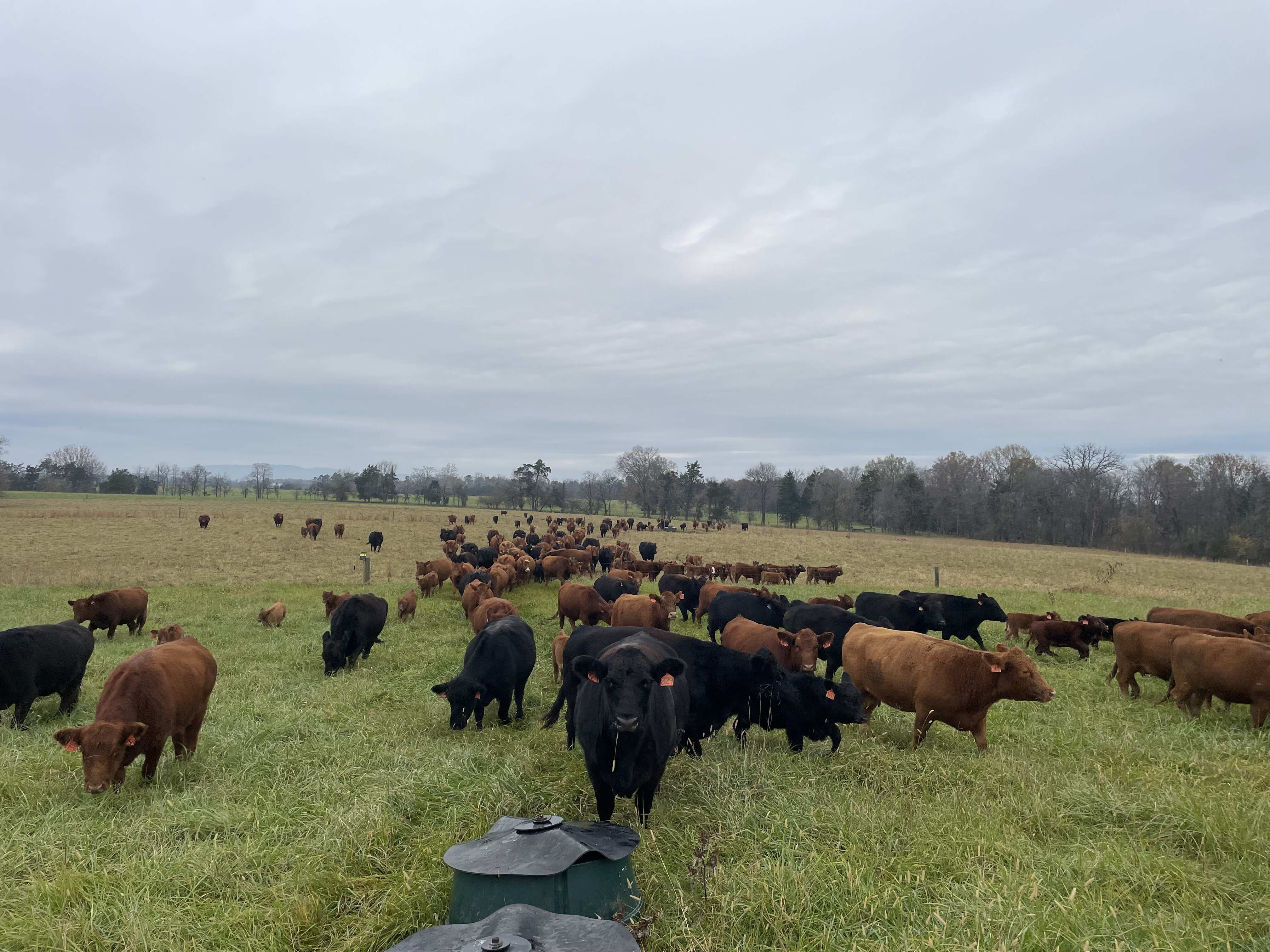Trusting It
posted on
September 6, 2023
Trusting it
Wow everyone, it's been absolutely wild out here! I know we are not alone in this. You'd have to be living under a rock if you weren't affected by the super blue moon or this heat wave. I do believe the end is in sight though, rain clouds are showing up in the 10-day and we pray that we can all catch a drink.
In all honesty, it's been incredibly stressful. We've had to make several hard decisions and trust it will all work out. We are watching farmers around us sacrifice their pastures and begin feeding their cattle hay simply because there is no grass regrowth or their water sources are drying up. I think it's important that consumers are aware of this. Garrett and I have a low enough stock density that we do still have grass, though many farmers are being forced to sell their herds in a saturated market. It's heartbreaking. It's part of the reason why farms are disappearing. If there was ever a time to learn more about Regenerative Farming practices, now is a crucial time. Pasture management is everything! Grass that is cared for is resilient to drought. When grass has a robust, deep root system and is not overgrazed, it traps moisture in the soil and experiences a much quicker regrowth when rain does come. Grass grazed to the dirt is damaged and stunted. The farmers that are feeding hay now are committing to feeding hay until next spring, however depending on the damage done to their pastures it could be longer.
On Saturday morning, Garrett woke up to turn the chicken scalder on. With a headlamp on he walked up the hill to the barn and could see a low cloud hovering over the pastures we have been managing. This dew was so thick he couldn't see through it. When Garrett told me this, I couldn't help but think that a well cared for pasture acts like it's own rainforest. The moisture trapped in this tall grass creates condensation and mists down on itself. A beautiful and important design.
More Trusting...
Thank you to Margy and Kurt who helped us at our markets on Saturday and Sunday! Garrett and I made the game time decision that even though the birds where weighing in a little lite, it would not be humane to wait a week to harvest. This heat is very hard on broilers at this age of maturity and also hard on us to process and keep the product cool. We were able to harvest 202 birds between Saturday and Sunday, with Sunday being an experimental run of processing by headlamp at 4am. Garrett had called our friends over at Living Pastures and Whiffletree to see if it was alright to catch the birds in the evening prior to harvesting--we got the greenlight. This saved us so much time and we are thankful to be learning how to make these steps smoother considering the circumstances. We will be harvesting the remainder of the flock this Sunday. They are faring very well in the heat with more room and airflow in the mobile tractors.
The other Rucker animals are doing well too! Garrett is making sure the pigs are given fresh mud puddles and he's hosing them down when he gets the chance. The turkeys are getting their turn with the shade-trampoline. The only downfall is they get on top and poop on it so Toren is not pleased with our decision.



